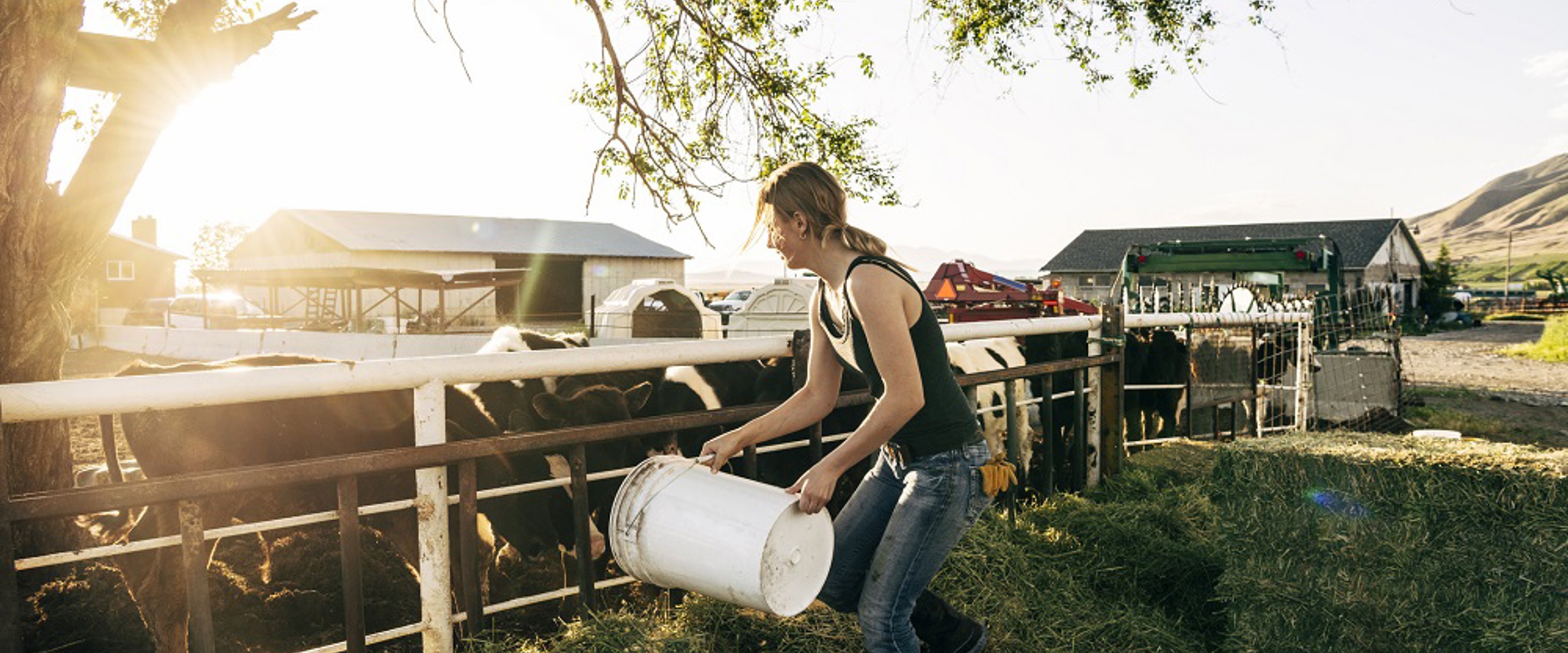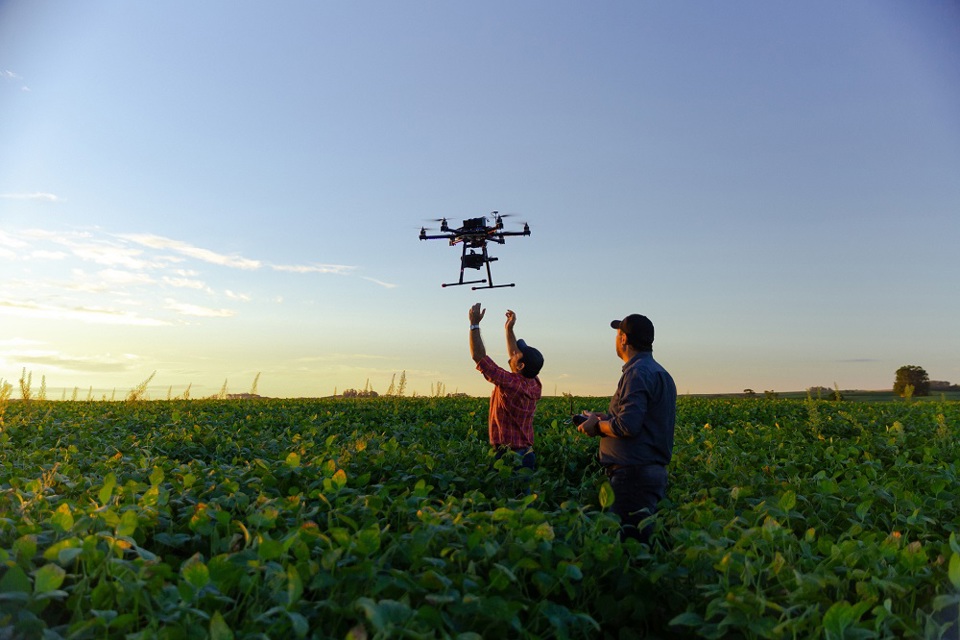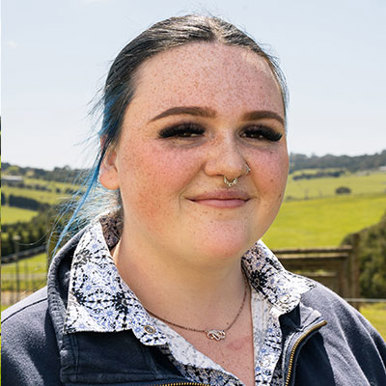
Your future in shaping the world
If you’re interested in a course that balances academic, practical and industry, with a focus on climate change, farming and sustainability, look no further than Agriculture.
Melbourne Polytechnic’s Agriculture courses qualifications offer a broad range of specialisations with primary industry specialists on our industry-standard mixed farming operations at our Northern Lodge Training Centre at Eden Park and at our Epping Campus.

“I'm able to travel around Australia. I can work on different farms in different places. It has been a great opportunity having a female teacher. It's been amazing to see what it's been like for her being a female in the industry.”
Kasey Humphrey
Certificate III in Agriculture Student
